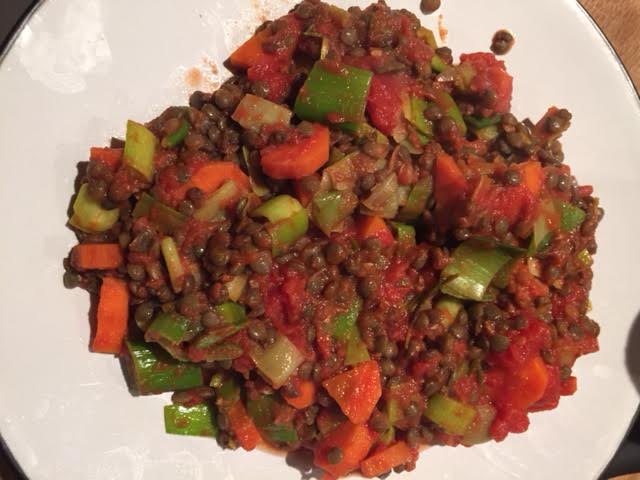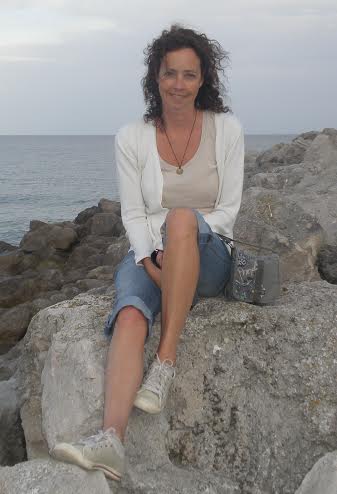 According to the NHS, the most common age for menopause to start is 51 – which is when we start to experience symptoms; aching joints, depression, lack of energy, lack of libido, weight gain, concentration problems, headaches and, most commonly, hot flushes and night sweats.
According to the NHS, the most common age for menopause to start is 51 – which is when we start to experience symptoms; aching joints, depression, lack of energy, lack of libido, weight gain, concentration problems, headaches and, most commonly, hot flushes and night sweats.
Although the onset of menopause is strongly influenced by our genes and ethnicity, the good news is that there are simple lifestyle changes you can make to delay it.
We asked Dr Marilyn Glenville, the UK’s leading Nutritionist, fertility and women’s health expert and an author of Natural Solutions to Menopause: How to stay healthy before, during and beyond the menopause , to give us her top tips on how to delay the menopause.
, to give us her top tips on how to delay the menopause.
Choose low-fat dairy
Low-fat dairy is not only beneficial for a diet but it can also delay the menopause.
Cow’s milk may contain a number of metabolites — or enzymes formed possibly during the process to remove the fat — which boost the amount of oestrogen (female sex hormone) in a woman’s system, helping to keep her reproductive organs working for longer. “Try and stick with organic milk and cheeses and put the emphasis on eating more yogurt because of the beneficial bacteria.”
Stop using old pans
It’s not just what you eat that can delay the menopause but also what you use and how you cook your food.
It’s wise to choose your cookware carefully, especially as PFOAs (a synthetic chemical used to repel grease and water) appear to build up in the body over the years and has been identified as a hormone disruptor. We don’t yet know how big a factor these chemicals are, but they may have a cumulative effect over a woman’s lifetime. “Using the right kind of pots and pans to cook your food may be important because the actual surface of the pan that you are using can end up being absorbed into your food when heated to high temperatures.”
“Try to avoid any non-stick pans or utensils completely as it’s just not worth having the possibility of that toxic exposure. It’s just as easy to cook with stainless steel, cast iron or glass cookware.”
Eat more fish!
Don’t just save fish for Fridays, eat it through the week to keep menopause at bay. It’s thought that omega 3 oils in fish help the pituitary gland in the brain to stimulate a woman’s ovaries to keep producing eggs and can help with many of the symptoms. “The Omega 3 fatty acids should be added separately because they are not usually included in a multivitamin and mineral and if they are, the levels will not be high enough.” If you find it hard to include fish in your diet, try taking NHP’s completely natural Omega 3 Plus (available from www.naturalhealthpractice.com, £27.77).You will also notice the difference in your skin and hair condition.
Use natural products
A key area of concern is phthalates, found in four out of five beauty products. Mostly found in foundation, face cream, lipstick and nail varnish, they can disrupt hormone balance.
“Think more carefully about the products you regularly put on your skin. As your skin is the most absorbent organ of the body, do you really need or want all these chemical entering your blood stream?
Check the ingredients list properly and, where possible, stick to natural, plant-based products.”
Stop using the clingfilm
Not only we use cling film on daily basis to keep our food fresh but these days much of our food comes wrapped in plastic.
This could have an effect on our hormones because these pliable plastics contain chemicals, which have been found to disrupt the reproductive and hormonal systems in animals and children.
“Although it’s not yet clear how this would affect the hormones of older women, some experts advise a ‘better safe than sorry’ approach — pointing to the rise in health problems such as breast cancer and other oestrogen-dependent conditions like fibroids or endometriosis, which are possibly linked to these chemicals.”
“Remember to never heat food in plastic — and if you must buy food wrapped in it, remove the packaging when you get home. Instead, store food in the fridge in a dish with a saucer covering it or use greaseproof paper.”
Expand your mind
“Help keep your mind sharp before reaching menopausal age. Daily crosswords, Suduko or even learning a new skill or fitness class will help keep the mind sharp and help increase concentration levels.” Or take a good supplement designed specifically for supporting brain and memory function, such as NHP’s New Brain and Memory Support (available from www.naturalhealthpractice.com, £27.77). This includes Amino acid tyrosine, which increases attention and mental physical focus and B6, B12 and folic acid that support normal psychological function.
Reduce your family stress
A falling menopause age is not just due to workload, but also to women being caught up in the sandwich generation — caring for parents and children — and feeling they are being constantly bombarded physically and emotionally. For women over 40, there can be the pressure of everyday life coping with caring for elderly parents as well as children who are staying at home for longer. At this time of life, the hormones are constantly changing. This constant pressure can act as the last straw — and their periods stop and never come back.
Dr Marilyn Glenville PhD is the UK’s leading nutritionist specialising in fertility and women’s health. She is Former President of the Food and Health Forum at the Royal Society of Medicine and author of a number of internationally bestselling books including Natural Solutions to the Menopause, The Natural Health Bible for Women and Fat Around the Middle: How to Lose That Bulge – For Good
and Fat Around the Middle: How to Lose That Bulge – For Good . Dr Glenville runs clinics in Harley Street, London Tunbridge Wells and Ireland www.marilynglenville.com. If you are interested in a consultation, call Dr Glenville’s clinic on 01892 515905 health@marilynglenville.com.
. Dr Glenville runs clinics in Harley Street, London Tunbridge Wells and Ireland www.marilynglenville.com. If you are interested in a consultation, call Dr Glenville’s clinic on 01892 515905 health@marilynglenville.com.











